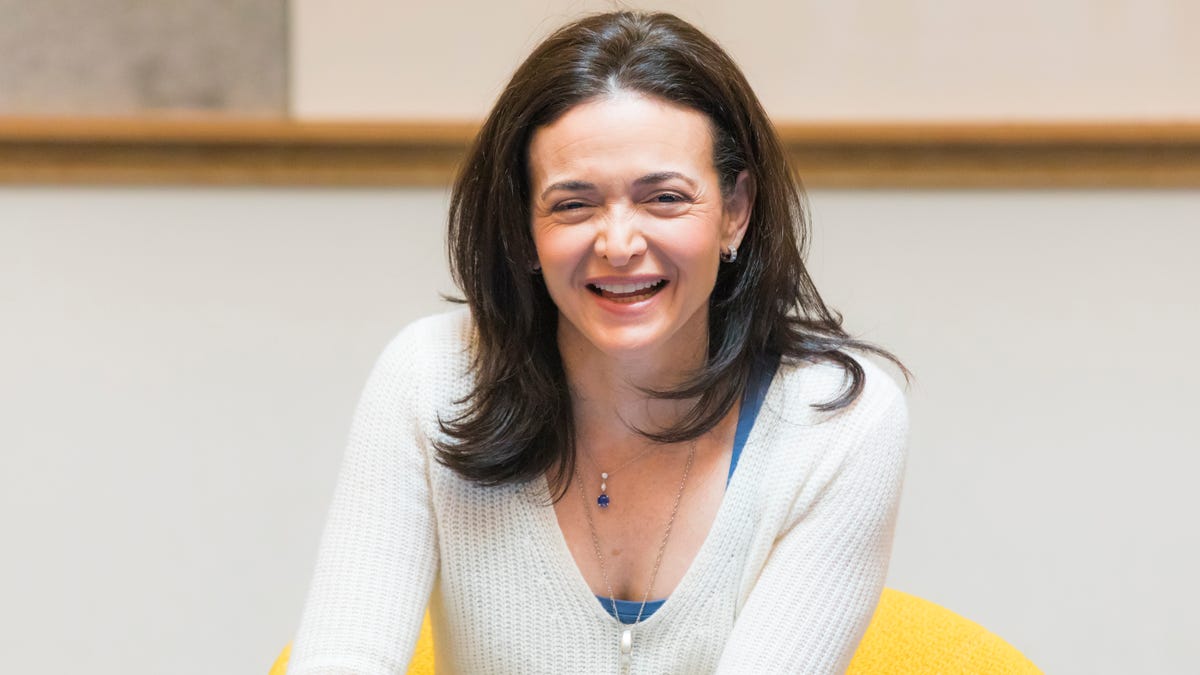Facebook isn't taking political ads 'for the money,' COO Sandberg says
Facebook continues to face questions about its role in elections.

Facebook COO Sheryl Sandberg says that 26% of the news that a user sees on the platform "will be from another point of view" on average.
If all Facebook cared about was the money it makes from political advertising, the company wouldn't be doing it, Chief Operating Officer Sheryl Sandberg said Tuesday. The social networking giant continues to answer questions about its decision to run political ads, including those with misleading information, without fact checking them. Instead, Facebook believes political ads are an important part of discourse.
"It's not for the money, let's start there," said Sandberg, speaking at Vanity Fair's New Establishment Summit in Los Angeles. "This is a very small part of our revenue ... It's very small, very small. And it is very controversial. We're not doing this for the money."
"We take political ads because we really believe they are part of political discourse," she added. "If you look at this over time, the people who have the most benefited from being able to run ads are people who are not covered by the media so they can't get their message out."
Sandberg's comments come as Facebook fends off mounting criticism of its practices. Politicians of all stripes have complained the social network has too much power to shape social and political discourse. Democratic presidential hopeful Sen. Elizabeth Warren, Facebook co-founder Chris Hughes and Salesforce CEO Marc Benioff are among those who have called for the company to be broken up. Facebook also continues to reel from concerns it isn't protecting user privacy, an issue that has already led to an unprecedented $5 billion fine.
Sandberg pushed back on the perception that Facebook was designed as an echo chamber to reinforce an individual user's worldview. She said that 26% of the news that a user sees on the platform "will be from another point of view" on average. "It is unequivocally true that Facebook usage and uses of social media show you broader points of view, not narrower points of view," she said.
The social network has been on a public relations blitz in recent days, with CEO Mark Zuckerberg speaking at Georgetown University and appearing on NBC Nightly News to push his views of free speech in the wake of a policy that allows politicians to lie in ads. The Facebook co-founder will also take to Capitol Hill on Wednesday, where he's expected to defend his company's controversial cryptocurrency project known as Libra.
Sandberg is one of Facebook's most visible and important executives. She joined the social network in 2008, helping create its multi-billion dollar advertising business. At the same time, Sandberg has used her platform to champion women's issues, becoming a feminist icon after the 2013 release of the book Lean In: Women, Work, and the Will to Lead.
Her leadership, though, was criticized after a series of Facebook scandals that followed the 2016 US presidential election and revelations that Russian trolls used the social network to sow discord to interfere in that vote. Last year, an investigation by The New York Times about the response of Facebook executives to those scandals painted an unflattering portrait of Sandberg's leadership.
She oversaw efforts to fend off Facebook's critics, according to the Times, including liberal billionaire George Soros who has been the target of online anti-Semitic and far-right conspiracy theories. Zuckerberg also reportedly blamed Sandberg for the public fallout over Cambridge Analytica, a UK-based political consultancy that accessed the data of up to 87 million Facebook users without their permission, according to The Wall Street Journal.
Last week, Sandberg pledged to donate $2.5 million to the Anti-Defamation League to help combat extremism and hate.
Facebook's woes have continued to pile up since 2016. Democrats and civil rights activists say the company is harming democracy by allowing politicians to lie in ads. The company's efforts to launch a new cryptocurrency called Libra next year is drawing scrutiny from lawmakers and regulators.
New York Attorney General Letitia James on Tuesday said in total 47 attorneys general have joined the investigation of Facebook on antitrust grounds. The probe, which was announced in September, focuses on Facebook's dominance and potential anticompetitive conduct stemming from that position.



